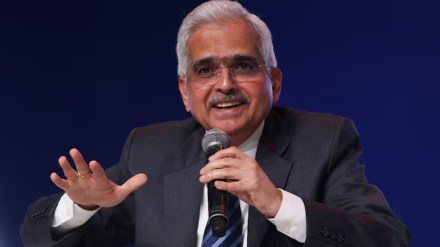Reserve Bank of India (RBI) governor Shaktikanta Das said on Monday that banks must strengthen their internal governance framework to curb unethical practices such as mis- selling and opening accounts without proper verification.
Addressing the conference of directors of private sector banks, Das said “carefully structure the incentives of banks’ sales staff” to curb the malaise of mis-selling. While such practices may yield short-term gains, they ultimately expose the bank to significant long-term risks, including reputational damage, supervisory scrutiny and financial penalties.
He also warned that the boards of banks should remain vigilant of build-up of concentrations within their business model to ensure that there is no excessive reliance on specific sectors, markets or customer segments that can expose them to amplified risks, particularly in times of economic stress or industry shifts.
Das advised boards to focus on improving functions such as risk management, internal audit and compliance as strengthening these functions can serve as invaluable resources for board directors.
“In order to effectively leverage these functions, boards need to actively safeguard the independence of these functions and ensure that the connected teams are adequately resourced with skilled staff and are given due prominence within the organisation,” Das said.
He emphasised on the need to adopt a proactive approach in identifying and addressing potential challenges, involving a wholesome understanding of both external and internal conditions of the banks.
In terms of delivering services to customers efficiently, the board should focus on strengthening the internal governance framework.
Keeping India’s goal of becoming a more inclusive economy by 2047, banks should align their strategies with the developmental aspirations of the people, Das said. Therefore, board members should set clear objectives that support these goals.
Das further said that the banking sector is transitioning through a time which is replete with opportunities as well as risks and challenges. “The banking sector remains strong and stable. All the financial indicators have improved since we met in May last year, reflecting the efforts of the various participants of the sector, including the management and boards,” he said.
Banking system’s capital adequacy ratio was at 16.7%, gross non-performing assets at 2.5%, net NPA at 0.6% and provision coverage ratio at 76.4% at September end, he said.
To keep the resilience of the banking system intact, the governor emphasised that strong fundamentals ought to be leveraged to reinforce and fortify the defences. “Good times, after all, are the best times to reinforce resilience and grow sustainably,” he added.
Amid rapidly changing technology, rise of new-age fintechs, third-party dependencies and climate change, a well-functioning board of directors with proactive oversight of governance supported by robust assurance functions and policies built around customer centricity, will ensure that banks adapt to ever-changing economic landscape, he concluded.
